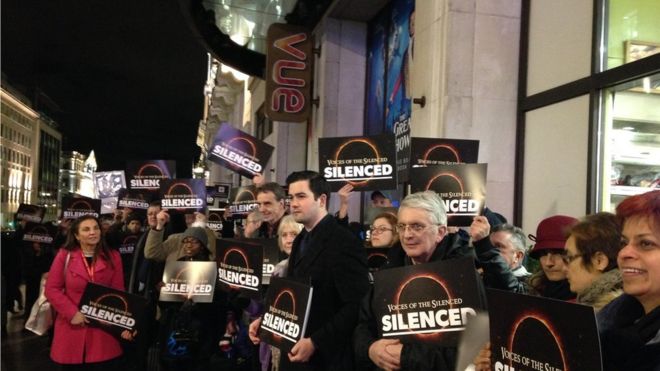A cinema in London’s West End faced an outcry of angry protestors after it cancelled a film that claimed to “cure” homosexuality.
When Christian group, Core Issues Trust, hired a screen at Vue Piccadilly to showcase their film: The Voices of the Silenced, they were unaware that they would soon become silenced themselves. The cinema cancelled the screening and has since been accused of censorship. But Vue have insisted that the film was simply against their company’s values. Vue issued a statement in defence of their decision: “After careful consideration of the facts, a decision was made to cancel the event… In some instances, where we feel that an activity and its associated campaign and content are in direct contradiction with Vue’s values, we make the decision to refrain from allowing that activity to take place in our cinemas.”
In opposition, the leader of Core Issues Trust, Michael Davidson, stated that the cancellation was “regrettable” and “showed no regard for this section of the population.” Davidson went on to say: “the film did not disrespect the LGBT community. Rather, it raised issues from a different point of view.” The Core Issues Trust has explained that it advocates “change-oriented processes” for “sexually damaged and wounded adults who seek wholeness.” However, promoting a conversion therapy that can “cure” homosexuality is indeed disrespectful to the LGBTQ+ community. By treating inherent sexuality as a mental disorder, the film presents homosexuality as an “abnormal” illness. Even resorting to language such as: “sexually damaged,” teaches that homosexuality is atypical.
The disagreement raises a significant debate: is it right to silence an opinion because it doesn’t corroborate with your own? With regards to freedom of speech, should all perspectives be given a voice? Or do some attitudes threaten the welfare of a vulnerable community?
On the one hand, it is of paramount importance that art is an indiscriminate medium through which everyone can express themselves. One should keep an open mind by listening to other perspectives, instead of censoring anyone with an alternative opinion. That way, audiences can form an opinion for themselves, rather than being indoctrinated with one way of thinking.
However, there is a fine line between art and harmful propaganda. By portraying an already marginalised group as “damaged”, and promoting a heteronormative society, the film could have been potentially dangerous. Othering an entire community could have been detrimental to the progress of the LGBTQ+ community’s battle for acceptance, and even incited further hate crime. This isn’t to say that there is one hegemonic way of viewing society. But at the same time, minority groups who face discrimination should be protected, and exposing audiences to a film such as The Voices of the Silenced could have an injurious effect on the LGBTQ+ community.
Eva Curless
(Image courtesy of BBC)

